Benjamin Foro developed, together with his team, a unique integral organisational model for their cooperatively organised Nostras Enterprise – combining ecological rooting in permaculture, a focus on the renewal of local identity and culture, the built up of an innovation ecology for a local regenerative economy, and a catalytic function for integral enterprise development in the larger region of the Valais.
Calling: Renewing the local Economy and global Ways of Thinking
Aiming to discover how an organization can make a significant contribution to address regional imbalances and renew the local economy, the burning issue of the research-to-innovation of Benjamin Foro and the Nostras Team was to develop a home-grown emancipatory integral concept for Nostras as an enterprise, based on permaculture, tradition and regenerative socio-economic approaches. The goal was to set a foundation for the enterprise’s integral philosophy by making explicit its story and vision and identifying untapped potentials – set within the context of the regional economic and social renewal of the Valais, a mountain canton of Switzerland.
The goal of the twelve months project was to co-create an organizational design, as well as a long-term strategic vision for Nostras.
Innovation Ecosystem: Creating an Integral Community in the Valais and in Switzerland
The built-up of an innovation ecosystem team was crucial to fully actualize the co-creation process and thoroughly understand
Under the stewardship of Alexander Schieffer – co-founder of Trans4m – the Nostras team and their families made up the most of the innovation ecosystem. Trans4m Junior Fellow Maxime Bertocchi played an important role as a mentor. He is also working on the realization of a video, to make the calling and story of Nostras explicit and visible to the outer world, in order to differentiate the enterprise from other companies and to infuse cannabis and its potential contribution to health with a new meaning.
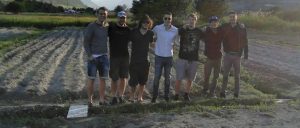
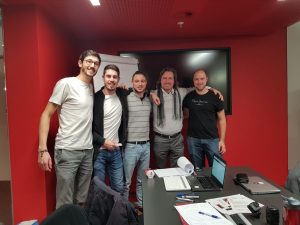
Integral Innovation: Co-Creating an Organizational Design and a long-term Integral Strategy Model
The integral innovation was pursued with an Integral Research design as a transformative process.
The first innovation was the co-creation of an organizational design in order to create a guideline and a frame for the organization in its future. Nostras’ new organizational design is rooted in the Integral Worlds theory and in the organization, through the metaphor of the cannabis plant. Thus, an own unique enterprise-economic expression was developed, but it was also the beginning of conceiving an educational process that enables others to understand how the conventional functions of an enterprise can be evolved to respond to the challenges of our time.
Drawing on the theory of the integral enterprise, the tasks are organized in four main domains. Evolving Marketing to Community Building continues to deepen the permaculture design of Nostras, linking it organically into the local soil (agricultural base) and collective soul (social structures). Transforming Human Resources into Conscious Evolution then integrates, among others, the second step of continuous “ethical emergence via regenerative economic approaches” – keeping Nostras on its developmental toes to spearhead the built up of a regenerative culture in the Valais, including and via regenerative economics. Evolving Operations into Knowledge Creation, we plan to develop entrepreneurs to solve local problems through cooperation and innovative thinking. Transforming Finance into Sustainable Development aims at establishing cooperative organizations to renew the local economy.
Each of the domains of our organizational design is separated in four further sub-domains. The goal is also that there is always one person, who has the responsibility for one function, in every project, in daily work etc. We always try to satisfy all perspectives, as all four functions are equally important and all aim for the same goal: evolving in harmony within our local context by nurturing the soil and contributing to the beauty and health of the global environment.
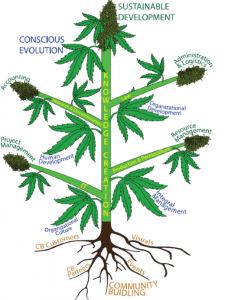
The second innovation was the development of a long-term strategic vision, illustrated in the Millwheel Strategy Model, setting milestones for Nostras to become a driver for the integral renewal of the Valais, via a Communiversity and an Integral Organization Ecosystem.
Nostras is at the heart of the model and there are four ultimate goals for our organization, one for each direction of the Integral Worlds Model. Each goal has three milestones, always starting from the center and “growing” towards the outside. There are therefore thirteen stars, just like on the flag of the Valais and we call them milestars. The stars in our flag symbolize the thirteen “Dizains” (now called districts) of the Valais. In Nostras’ context, the 13 stars represent common goals that we should aim for collectively, as a united canton. These goals and milestars should be considered ideals that will never be fully reached and that require constant nurturing, but also like ecosystems that have “a life of their own” and can stimulate people around them. The model also features four projects that we are working on or planning to implement in the future. Those projects, illustrated with ellipses, are example for projects within the Integral Organization Ecosystem, which will help achieve our renewal goals for the Valais.
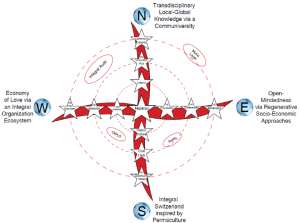
Integral Impact: Nostras as Emerging Integral Enterprise impacting Economy and Consciousness of the Valais
The new organizational design impacts essentially Nostras, as it defines clearly the roles and responsibilities. For example, the filing system is now organized according to this design. But it also makes explicit the integral philosophy that guides the organization. It was developed with the goal to still work when there are hundreds of people working in the organization. Therefore, it should enable to “keep the spirit alive” when the organization grows, even if the founding members should not be there anymore.
The creation of the integral strategy model has impacts on various levels. First, it represents a guideline for the enterprise’s future. Furthermore, it is a great tool to explain the integral philosophy to other people and thus to open people’s minds towards alternative ways of structuring society and economy. Finally, it allows people and other organizations that wish to contribute to the vision to be part of the journey. Within the Millwheel Strategy Model, everyone can find a way to participate in his or her own way.
These two models were also explained in an integral booklet addressed to partners of Nostras, as well as an inspring short video, that will soon be produced by Maxime Bertocchi.
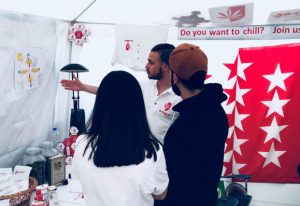
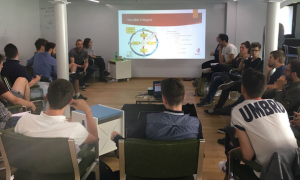
NOTE (September 2018): Benjamin Foro successfully graduates at the University of St. Gallen
